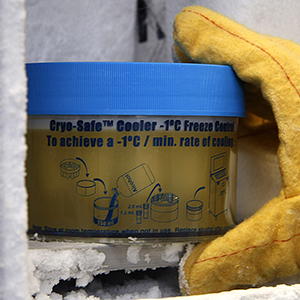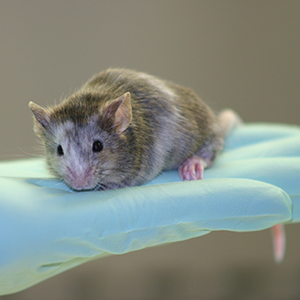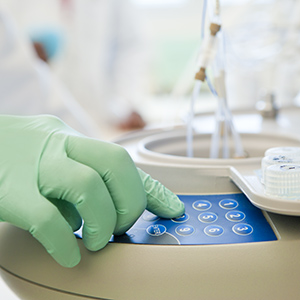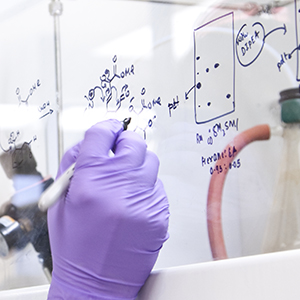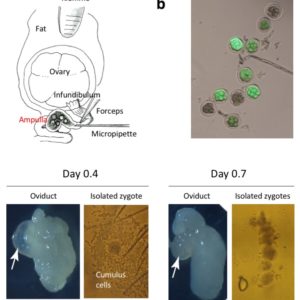Description
Cell line helps study ethanol metabolism
Alcoholic liver disease (ALD) is a major problem associated with alcohol abuse. In fact, ALD is the second leading cause of death among all liver diseases. It is believed that ALD is due to a decreased ability of hepatocytes to regenerate due to prolonged exposure to toxic metabolic byproducts produced during alcohol oxidation/metabolism.
One of the key enzymes involved in alcohol oxidation is alcohol dehydrogenase (ADH). ADH converts ethanol to acetaldehyde, which can then be converted to acetate by aldehyde dehydrogenase. Production of acetaldehyde from ethanol generates reactive oxygen species which in turn cause oxidative stress that can eventually lead to the development of ALD. However there is currently a great deal that is unknown about the exact mechanisms leading to the development of ALD.
To help study the metabolic basis of ethanol-induced hepatocellular injury researchers at the University of Nebraska Medical Center have created a cell line using human hepatocellular carcinoma (HepG2) cells stably expressing ADH (VA-13 cells).
They have shown that VA-13 cells metabolize ethanol into acetaldehyde and have a dramatic increase in the NADH/NAD+ ratio indicating an increased redox-state. VA-13 cells cultured in the presence of ethanol also have a significant reduction in cell accumulation due to increased cytotoxicity and impaired DNA synthesis compared to cells without ADH. Further studies determined that the impairment of cell cycle progression in VA-13 cells was due in part to decreased Cdc2 activity.
This cell line is a promising tool that will help further elucidate the mechanisms of ethanol-induced hepatocellular injury.
To discuss licensing opportunities please contact Matt Boehm, PhD, at mboehm@unmc.edu or 402-536-9881.

